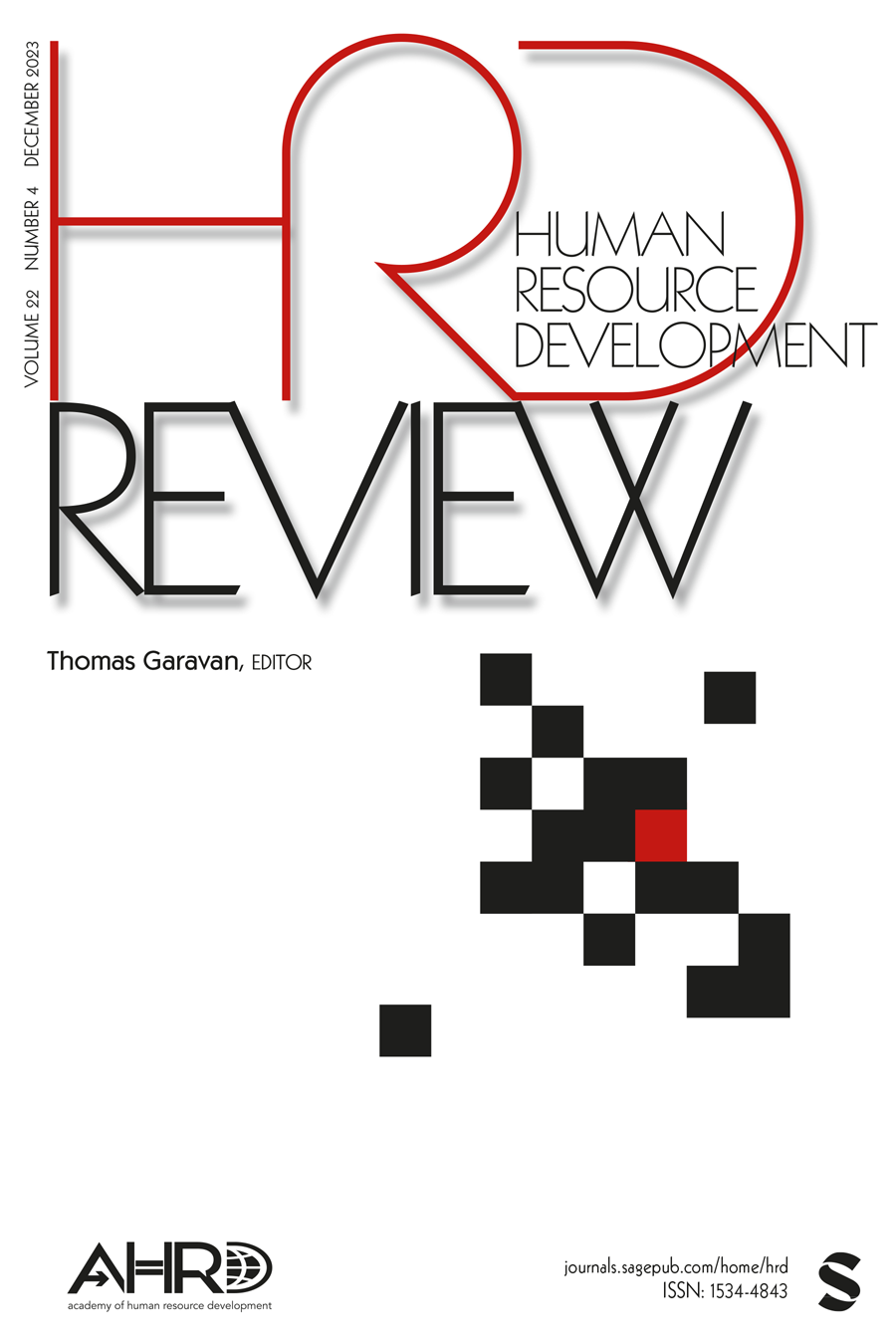学习型组织与组织绩效、员工态度关系的元分析:基于学习型组织问卷的维度
IF 4.6
3区 管理学
Q1 MANAGEMENT
引用次数: 25
摘要
本荟萃分析研究的目的是检验学习型组织维度问卷(DLOQ)与经常检查的结果(包括组织绩效和员工态度)之间的相关性。DLOQ与组织绩效(如财务、知识和创新绩效)、员工态度(如组织承诺和工作满意度)和子维度(如情感、持续性和规范性承诺)之间存在正相关关系,但DLOQ与离职率之间的负相关关系除外。由于DLOQ多年来已在许多国家使用,本研究还考察了民族文化对结果的影响。权力距离调节了学习型组织与整体组织绩效之间的关系。我们的元分析综述作为一个重要的调节因子,对学习型组织概念和民族文化研究的文献做出了实质性的贡献。讨论了这些发现的意义以及对未来研究的建议。本文章由计算机程序翻译,如有差异,请以英文原文为准。
A Meta-Analytic Review of the Relationship Between Learning Organization and Organizational Performance and Employee Attitudes: Using the Dimensions of Learning Organization Questionnaire
The purpose of this meta-analysis study is to examine the correlations between the Dimensions of Learning Organization Questionnaire (DLOQ) and frequently examined outcomes including organizational performance and employee attitudes. Positive relationships were found between the DLOQ and organizational performance (e.g., financial, knowledge, and innovative performance) and employee attitudes (e.g., organizational commitment and job satisfaction) and the sub-dimensions (e.g., affective, continuance, and normative commitment), with a notable exception of a negative relationship between the DLOQ and turnover. Because the DLOQ has been used in many countries over the years, this study also examined the influence of national culture on the outcomes. Power distance moderated the relationship between the learning organization and overall organizational performance. Our meta-analytic review makes substantive contributions to the literature on the learning organization concept and the study of national culture as a significant moderator. Implications of these findings and suggestions for future research are discussed.
求助全文
通过发布文献求助,成功后即可免费获取论文全文。
去求助
来源期刊

Human Resource Development Review
MANAGEMENT-
CiteScore
9.60
自引率
17.20%
发文量
35
期刊介绍:
As described elsewhere, Human Resource Development Review is a theory development journal for scholars of human resource development and related disciplines. Human Resource Development Review publishes articles that make theoretical contributions on theory development, foundations of HRD, theory building methods, and integrative reviews of the relevant literature. Papers whose central focus is empirical findings, including empirical method and design are not considered for publication in Human Resource Development Review. This journal encourages submissions that provide new theoretical insights to advance our understanding of human resource development and related disciplines. Such papers may include syntheses of existing bodies of theory, new substantive theories, exploratory conceptual models, taxonomies and typology developed as foundations for theory, treatises in formal theory construction, papers on the history of theory, critique of theory that includes alternative research propositions, metatheory, and integrative literature reviews with strong theoretical implications. Papers addressing foundations of HRD might address philosophies of HRD, historical foundations, definitions of the field, conceptual organization of the field, and ethical foundations. Human Resource Development Review takes a multi-paradigm view of theory building so submissions from different paradigms are encouraged.
 求助内容:
求助内容: 应助结果提醒方式:
应助结果提醒方式:


